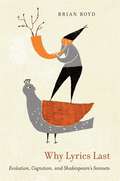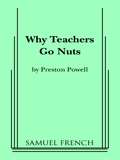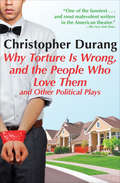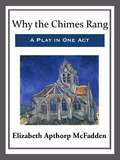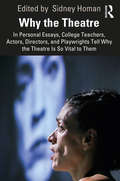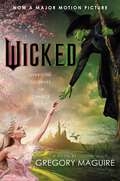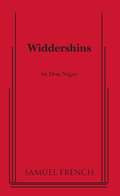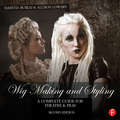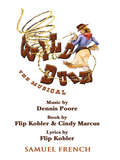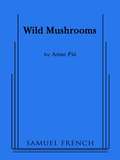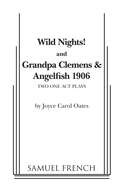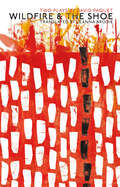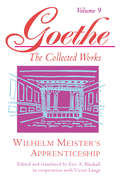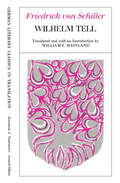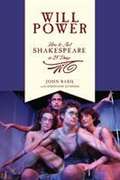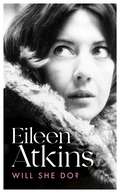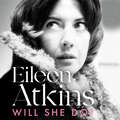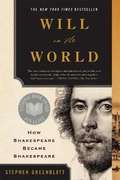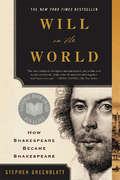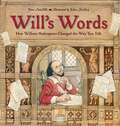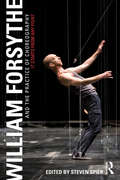- Table View
- List View
Why Lyrics Last
by Brian BoydIn Why Lyrics Last, the internationally acclaimed critic Brian Boyd turns an evolutionary lens on the subject of lyric verse. He finds that lyric making, though it presents no advantages for the species in terms of survival and reproduction, is âeoeuniversal across cultures because it fits constraints of the human mind. âe#157; An evolutionary perspectiveâe" especially when coupled with insights from aesthetics and literary historyâe"has much to tell us about both verse and the lyrical impulse. Boyd places the writing of lyrical verse within the human disposition âeoeto play with pattern,âe#157; and in an extended example he uncovers the many patterns to be found within Shakespeareâe(tm)s Sonnets. Shakespeareâe(tm)s bid for readership is unlike that of any sonneteer before him: he deliberately avoids all narrative, choosing to maximize the openness of the lyric and demonstrating the power that verse can have when liberated of story. In eschewing narrative, Shakespeare plays freely with patterns of other kinds: words, images, sounds, structures; emotions and moods; argument and analogy; and natural rhythms, in daily, seasonal, and life cycles. In the originality of his stratagems, and in their sheer number and variety, both within and between sonnets, Shakespeare outdoes all competitors. A reading of the Sonnets informed by evolution is primed to attend to these complexities and better able to appreciate Shakespeareâe(tm)s remarkable gambit for immortal fame.
Why Teachers Go Nuts
by Preston PowellBurlesque, Comedy, Short Play \ 8m, 7f \ An insane discussion of the age old problem: "are teachers driven nuts or are teachers nuts to begin with?" Moving, unperturbed, in a veritable bedlam of a classroom, and accepting the most insane answers as logical and academically correct, Miss Abigail fails to so much as notice the frantic efforts of her pupils to reduce the classroom to shambles. A godsend to the director who has neither time nor talent at his disposal. All parts, except that of the teacher, are short and easily memorized.
Why Theatre Matters
by Kathleen GallagherWhat makes young people care about themselves, others, their communities, and their futures? In Why Theatre Matters, Kathleen Gallagher uses the drama classroom as a window into the daily challenges of marginalized youth in Toronto, Boston, Taipei, and Lucknow. An ethnographic study which mixes quantitative and qualitative methodology in an international multi-site project, Why Theatre Matters ties together the issues of urban and arts education through the lens of student engagement. Gallagher's research presents a framework for understanding student involvement at school in the context of students' families and communities, as well as changing social, political, and economic realities around the world.Taking the reader into the classroom through the voices of the students themselves, Gallagher illustrates how creative expression through theatre can act as a rehearsal space for real, material struggles and for democratic participation. Why Theatre Matters is an invigorating challenge to the myths that surround urban youth and an impressive study of theatre's transformative potential.
Why Torture Is Wrong, and the People Who Love Them: And Other Political Plays
by Christopher Durang&“[A] hilarious and disturbing new comedy about all-American violence&” and other whip-smart political satires by the Tony Award-winning playwright (Ben Branley, The New York Times). Christopher Durang, who The New York Observer called &“Jonathan Swift&’s nicer, younger brother,&” became one of America&’s most beloved and acclaimed playwrights by marrying gonzo farce with incisive social critique. Now collected in Why Torture Is Wrong, and the People Who Love Them and Other Political Plays are Durang&’s most revealing satirical plays. Why Torture Is Wrong, and the People Who Love Them is the story of a young woman in crisis: Is her new husband, whom she married when drunk, a terrorist? Or just crazy? Or both? Is her father&’s hobby of butterfly collecting really a cover for his involvement in a shadow government? Does her mother frequent the theater for mental escape, or is she just insane? Add in a minister who directs porno, and a ladylike operative whose underwear just won&’t stay up, and this black comedy will make us laugh all the way to the waterboarding room. Also included in this volume are: Excerpts from Sex and LongingCardinal O&’ConnorThe Book of Leviticus ShowEntertaining Mr. HelmsThe Doctor Will See You NowUnder Duress: Words on FireAn Alter Boy Talks to GodThe Hardy Boys and the Mystery of Where Babies Come From
Why the Chimes Rang: A Play in One Act
by Elizabeth Apthorp McfaddenWhy the Chimes Rang' is a beautifully written story based on an old legend. It has wonderful evocative symbolism, the old church with a bell tower soaring into the sky, touching the clouds waiting for a perfect gift for the Christ child, a perfect gift of love.
Why the Theatre: In Personal Essays, College Teachers, Actors, Directors, and Playwrights Tell Why the Theatre Is So Vital to Them
by Sidney HomanWhy the Theatre is a collection of 26 personal essays by college teachers, actors, directors, and playwrights about the magnetic pull of the theatre and its changing place in society. The book is divided into four parts, examining the creative role of the audience, the life of the actor, director, and playwright in performance, ways the theatre moves beyond the playhouse and into the real world, and theories and thoughts on what the theatre can do when given form onstage. Based on concrete, highly personal examples, experiences, and memories, this collection offers unique perspectives on the meaning of the theatre and the beauty of weaving the world of the play into the fabric of our lives. Covering a range of practices and plays, from the Greeks to Japanese Butoh theatre, from Shakespeare to modern experiments, this book is written by and for the theatre instructor and theatre appreciation student.
Wicked: Life and Times of the Wicked Witch of the West (Wicked Years #1)
by Gregory MaguireThe New York Times bestseller and basis for the Tony-winning hit musical, soon to be a major motion picture starring Cynthia Erivo and Ariana Grande. With millions of copies in print around the world, Gregory Maguire’s Wicked is established not only as a commentary on our time but as a novel to revisit for years to come. Wicked relishes the inspired inventions of L. Frank Baum’s 1900 novel, The Wonderful Wizard of Oz, while playing sleight of hand with our collective memories of the 1939 MGM film starring Margaret Hamilton (and Judy Garland). In this fast-paced, fantastically real, and supremely entertaining novel, Maguire has populated the largely unknown world of Oz with the power of his own imagination. Years before Dorothy and her dog crash-land, another little girl makes her presence known in Oz. This girl, Elphaba, is born with emerald-green skin—no easy burden in a land as mean and poor as Oz, where superstition and magic are not strong enough to explain or overcome the natural disasters of flood and famine. Still, Elphaba is smart, and by the time she enters Shiz University, she becomes a member of a charmed circle of Oz’s most promising young citizens. But Elphaba’s Oz is no utopia. The Wizard’s secret police are everywhere. Animals—those creatures with voices, souls, and minds—are threatened with exile. Young Elphaba, green and wild and misunderstood, is determined to protect the Animals—even if it means combating the mysterious Wizard, even if it means risking her single chance at romance. Ever wiser in guilt and sorrow, she can find herself grateful when the world declares her a witch. And she can even make herself glad for that young girl from Kansas. Recognized as an iconoclastic tour de force on its initial publication, the novel has inspired the blockbuster musical of the same name—one of the longest-running plays in Broadway history. Popular, indeed. But while the novel’s distant cousins hail from the traditions of magical realism, mythopoeic fantasy, and sprawling nineteenth-century sagas of moral urgency, Maguire’s Wicked is as unique as its green-skinned witch. <b>New York Times Bestseller</b>
Widdershins
by Don NigroCharacters: 4 male, 6 female. Interior. Inspector Ruffing, the troubled hero of Nigro's Ravenscroft, Demonology, Creatures Lurking In The Churchyard, The Rooky Wood and Mephisto returns in this baffling mystery that was an audience favorite at the First International Mystery Festival in 2007. In a peaceful house near the Welsh border, an entire family has vanished suddenly without a trace one evening with supper on the table and no apparent violence. Ruffing's attempt to understand what's happened to a couple and their two daughters leads him deep into his own dark soul. The only clue is a piece of paper left on a desk with the word 'Widdershins' written on it. Beautiful women, dark secrets, the Impressionists and the Druids all figure in this unusual and thought provoking play.
Wig Making and Styling: A Complete Guide for Theatre & Film
by Martha Ruskai Allison LoweryWig Making and Styling: A Complete Guide for Theatre and Film, Second Edition is the one-stop shop for the knowledge and skills you need to create and style wigs. Covering the basics, from styling tools to creating beards, it ramps up to advanced techniques for making, measuring, coloring, and cutting wigs from any time period. Whether you’re a student or a professional, you‘ll find yourself prepared for a career as a skilled wig designer with tips on altering existing wigs, multiple approaches to solving wig-making problems, and industry best practices.
Wild Dust: The Musical
by Flip Kobler Cindy Marcus Dennis PooreMusical Comedy / 1 m., 8 f., plus 1 m. extra. / Interior / Based on the original play Wild Dust, this engaging Wild West story has been delighting audiences for years. And now, the original playwright, Flip Kobler, has joined forces with veteran composer Dennis Poore to turn Wild Dust the play into Wild Dust: The Musical. It's 1887 and a dust storm is about to hit the town of Willow Creek. The west was still wild, but the wind was wilder. Wild Dust the Musical, takes place at a time when the "west was wild, the women were soft and the men were brave." The worst dust storm in a decade was about to hit the town, and all the men had gone to drive the horses and cattle to safer shelter to ride out the storm. That left the women of town to fend for themselves in the only building strong enough to withstand the pounding sand - the town brothel. So four "fallen ladies" and three "ladies of the town" are thrown together for the next 72 hours, along with a mysterious cowboy and a dancing corpse! For three days they confront the elements, each other, and hardest of all - themselves. It's a comic romp with lots of slamming doors, mistaken identities, and one very dead body. No one is exactly what they seem, and everyone's got a secret hidden up their sleeve. Wild Dust: The Musical is a comic romp that's not to be missed.
Wild Mushroom
by Anne PieComedy / 2m,3f, / Interior / This present-day comedy set in the Bronx, revolves around life in the Benny Scrivente family as seen through the eyes of Benny's thirteen year-old son, Joey. Benny is no match for Joey. a gifted, wise-mouthed boy. A widowed postal worker, Benny struggles to raise Benny and his two beautiful daughters, Dodie and Regina, hoping to marry them the old-fashioned Italian way so he can pursue his dream of opening a trattoria. / Sweet, simple-minded Dodie, lacking in the IQ department, (which drives Joey to his wit's end) is already engaged to Mario, a man of questionable character. Sensual Regina prefers to play the field, much to Benny's consternation. Joey, feeling neglected by them all, manages to attract more than just his family's attention. He pens a literary masterpiece that borders on being an exposé. / Enter clairvoyant Aunt Rose, Benny's older sister. She is a true eccentric and Joey's champion. Her constant shower of predictions makes her a perpetual source of irritation to Benny. Proud of her father's cooking, Dodie unwittingly invites the Mafia over for Sunday dinner, which sends Benny into a tizzy. It's Aunt Rose's unorthodox hors d'oeuvres which pack the wallop that results in a happy ending.
Wild Nights! & Grandpa Clemens and Angelfish 1906
by Joyce Carol OatesDramatic Comedy / 2m, 2f / Wild Nights! is a matched duo of plays about Emily Dickinson and Samuel Clemens/Mark Twain—adapted from a prose work described by the New York Times as “morality tales about sexual power” that “ingeniously” imagine the last days of classic American writers whose true, private lives are unknown to the public.
Wildfire & The Shoe: Two Plays
by David PaquetWith spark and spunk, these two dark yet absurdly charming comedies offer a kaleidoscopic perspective of those who are destined to go down a lonely path and those who choose to share the weight of others’ journeys. In Wildfire, three odd triplets, two misfits, and one misunderstood woman are all burning with solitude and desire. Through an exploration of heredity and fate, these seemingly ordinary characters choose to struggle against their isolation in extraordinary yet relatable ways. In The Shoe, a weary mother, her perplexing son, their shy dentist, and his cocktail-sipping receptionist find themselves drawn together to face problems too daunting to deal with alone. From meltdowns to moments of tenderness, each of them are called on to find reserves of strength and empathy they never knew they had.
Wilhelm Meister's Apprenticeship: Goethe, Collected Works
by Eric A. Blackall Johann Wolfgang VonThe story centers on Wilhelm, a young man living in the mid-1700s who strives to break free from the restrictive world of economics and seeks fulfillment as an actor and playwright. Along with Eric Blackall's fresh translation of the work, this edition contains notes and an afterword by the translator that aims to put this novel into historical and artistic perspective for twentieth-century readers while showing how it defies categorization.
Wilhelm Tell
by Johann Christoph Friedrich von Schiller William F. MainlandWhen Schiller completed his play, Wilhelm Tell, as a "New Year's Gift for 1805" he foretold that it would cause a stir. He was right. In the midst of Great Power politics a play which drew substance from one of the fourteenth-century liberation movements proved both attractive and inflammatory. Since then the work as become immensely popular. This new English translation by William F. Mainland brings out the essential tragi-comic nature of Wilhelm Tell but also emphasizes its impressive formal unity. Schiller based his play on chronicles of the Swiss liberation movement, in which Wilhelm Tell played a major role. Since Tell's existence has never been proven, Schiller, a historian by profession, felt he had to devise a figure who would bring the uncertainties and contradictions of the various Swiss chronicles into focus. Respected for his courage and skill with a bow, for his peaceable nature and his integrity, Schiller's archer--while always ready to aid his fellows--habitually seeks solitude. In the midst of political turmoil Wilhelm Tell is the nonpolitical man of action. Keenly interested in the problematic interplay of history and legend, Schiller turned it to be dramatic advantage. He constructed his play to illustrate the greatest possible development of the character traits suggested for Tell by the chronicles. The result of Schiller's supreme achievement in historical drama.
Wilhelm Tell (German Literacy Classics in Translation)
by Friedrich von SchillerWhen Schiller completed Wilhelm Tell as a "New Year's Gift for 1805" he foretold that it would cause a stir. He was right. In the midst of Great Power politics a play which drew substance from one of the fourteenth-century liberation movements proved both attractive and inflammatory. Since then the work as become immensely popular. This new English translation by William F. Mainland brings out the essential tragi-comic nature of Wilhelm Tell but also emphasizes its impressive formal unity. Schiller based his play on chronicles of the Swiss liberation movement, in which Wilhelm Tell played a major role. Since Tell's existence has never been proven, Schiller, a historian by profession, felt he had to devise a figure who would bring the uncertainties and contradictions of the various Swiss chronicles into focus. Respected for his courage and skill with a bow, for his peaceable nature and his integrity, Schiller's archer—while always ready to aid his fellows—habitually seeks solitude. In the midst of political turmoil Wilhelm Tell is the nonpolitical man of action. Keenly interested in the problematic interplay of history and legend, Schiller turned it to be dramatic advantage. He constructed his play to illustrate the greatest possible development of the character traits suggested for Tell by the chronicles. The result of Schiller's supreme achievement in historical drama.
Will Power: How To Act Shakespeare In 21 Days
by Stephanie Gunning John BasilThousands of young people set their sights on becoming professional actors each year, hoping to get a foot in the door with a solid resume built in high school, college, and local theatre company productions. But competition for parts is fierce, and no list of credits is complete without competency in the classical works of Shakespeare. Will Power guides both professional actors and aspirants through a lively 21-day rehearsal process leading up to the day of an actual audition or performance. Actors need never again be confused about where to begin or how to follow through when developing a Shakespearean role. Clear stepping stones have been laid out before them-by Shakespeare himself. Even seasoned actors, familiar with verse, are fascinated when they learn about the acting clues and stage directions embedded in the original First Folio text of Shakespeare's work, in the form of particular punctuation, capitalized letters, and spelling. Putting actors on their feet in dynamic and fun rehearsals, this practical guide helps them develop the 7 Cs of acting: commitment, concentration, conditioning, control, confidence, courage, and clarity while also demystifying how to perform these these magnificently crafted plays.
Will She Do?: Act One of a Life on Stage (Eileen Atkins)
by Eileen Atkins'She is the cur's cods, the terrier's testicles, the business. I will go farther and declare that Atkins is the finest actor appearing in the world right now' - A. A. GillWill She Do? is the story of a girl from a council estate in Tottenham, born in 1934 to an electric-meter reader and a seamstress, who was determined to be an actress. Candid and witty, this memoir takes her from her awkward performances in working-men's clubs at six years of age as dancing 'Baby Eileen', through the war years in London, to her breakthrough at thirty-two on Broadway with The Killing of Sister George, for which she received the first of four Tony Award nominations. She co-created Upstairs, Downstairs and wrote the screenplay for Mrs Dalloway (for which she won an Evening Standard Award) and at aged eighty-six, this is her first autobiographical work. Characterised by an eye for the absurd, a terrific knack for storytelling and an insistence on honesty, Will She Do? is a wonderful raconteur's tale about family, about class, about youthful ambition and big dreams and what really goes on behind the scenes. Made a Dame in 1991, Eileen Atkins has been on American and British stage and screen since 1957 and has won an Emmy, a BAFTA and is a three-time Olivier Award winner; her theatre performances include The Height of the Storm, Ellen Terry, All that Fall and she has appeared in television and films ranging from Doc Martin to Cranford to The Crown.
Will She Do?: Act One of a Life on Stage (Eileen Atkins)
by Eileen Atkins'She is the cur's cods, the terrier's testicles, the business. I will go farther and declare that Atkins is the finest actor appearing in the world right now' - A. A. Gill'Yes, she will: this vivid, honest memoir by a great actress and a natural writer goes down a treat' Tom StoppardWill She Do? is the story of a girl from a council estate in Tottenham, born in 1934 to an electric-meter reader and a seamstress, who was determined to be an actress. Candid and witty, this memoir takes her from her awkward performances in working-men's clubs at six years of age as dancing 'Baby Eileen', through the war years in London, to her breakthrough at thirty-two on Broadway with The Killing of Sister George, for which she received the first of four Tony Award nominations. She co-created Upstairs, Downstairs and wrote the screenplay for Mrs Dalloway (for which she won an Evening Standard Award) and at aged eighty-six, this is her first autobiographical work. Characterised by an eye for the absurd, a terrific knack for storytelling and an insistence on honesty, Will She Do? is a wonderful raconteur's tale about family, about class, about youthful ambition and big dreams and what really goes on behind the scenes. Made a Dame in 1991, Eileen Atkins has been on American and British stage and screen since 1957 and has won an Emmy, a BAFTA and is a three-time Olivier Award winner; her theatre performances include The Height of the Storm, Ellen Terry, All that Fall and she has appeared in television and films ranging from Doc Martin to Cranford to The Crown.
Will She Do?: Act One of a Life on Stage (Eileen Atkins)
by Eileen Atkins'She is the cur's cods, the terrier's testicles, the business. I will go farther and declare that Atkins is the finest actor appearing in the world right now' A. A. GillWill She Do? is the story of a girl from a council estate in Tottenham, born in 1934 to an electric-meter reader and a seamstress, who was determined to be an actress.Candid and witty, this memoir takes her from her awkward performances in working-men's clubs at six years of age as dancing 'Baby Eileen', through the war years in London, to her breakthrough at thirty-two on Broadway with The Killing of Sister George, for which she received the first of four Tony Award nominations. She co-created Upstairs, Downstairs and wrote the screenplay for Mrs Dalloway (for which she won an Evening Standard Award) and at aged eighty-six, this is her first autobiographical work.Characterised by an eye for the absurd, a terrific knack for storytelling and an insistence on honesty, Will She Do? is a wonderful raconteur's tale about family, class, youthful ambition, big dreams and what really goes on behind the scenes.Made a Dame in 1991, Eileen Atkins has been on American and British stage and screen since 1957 and has won an Emmy, a BAFTA and is a three-time Olivier Award winner. Her theatre performances include The Height of the Storm, Ellen Terry, All that Fall and she has appeared in television and films ranging from Doc Martin to Cranford to The Crown.
Will in the World: How Shakespeare Became Shakespeare
by Stephen GreenblattHow does a young man from a small provincial town move to London in the late 1580s and in a remarkably short time, become the greatest playwright of all time?
Will in the World: How Shakespeare Became Shakespeare
by Stephen Greenblatt"Greenblatt knows more about [Shakespeare] than Ben Jonson or the Dark Lady did."--John Leonard, ?Harper's A young man from a small provincial town moves to London in the late 1580s and, in a remarkably short time, becomes the greatest playwright not of his age alone but of all time. How is an achievement of this magnitude to be explained? How did Shakespeare become Shakespeare? Stephen Greenblatt brings us down to earth to see, hear, and feel how an acutely sensitive and talented boy, surrounded by the rich tapestry of Elizabethan life, could have become the world's greatest playwright. ?A Pulitzer Prize and National Book Award Finalist.
Will's Words: How William Shakespeare Changed the Way You Talk
by Jane SutcliffeWhen Jane Sutcliffe sets out to write a book about William Shakespeare and the Globe Theatre, in her own words, she runs into a problem: Will's words keep popping up all over the place! What's an author to do? After all, Will is responsible for such familiar phrases as "what's done is done" and "too much of a good thing." He even helped turn "household words" into household words. But, Jane embraces her dilemma, writing about Shakespeare, his plays, and his famous phrases with glee. After all, what better words are there to use to write about the greatest writer in the English language than his very own? As readers will discover, "the long and the short of it" is this: Will changed the English language forever. Backmatter includes an author&’s note, a bibliography, and a timeline.
William Forsythe and the Practice of Choreography: It Starts From Any Point
by Steven SpierWilliam Forsythe’s reinvigoration of classical ballet during his 20-year tenure at the Ballett Frankfurt saw him lauded as one of the greatest choreographers of the postwar era. His current work with The Forsythe Company has gone even further to challenge and investigate fundamental assumptions about choreography itself. William Forsythe and the Practice of Choreography presents a diverse range of critical writings on his work, with illuminating analysis of his practice from an interdisciplinary perspective. The book also contains insightful working testaments from Forsythe’s collaborators, as well as a contribution from the choreographer himself. With essays covering all aspects of Forsythe’s past and current work, readers are provided with an unparalleled view into the creative world of this visionary artist, as well as a comprehensive resource for students, scholars, and practitioners of ballet and contemporary dance today.
